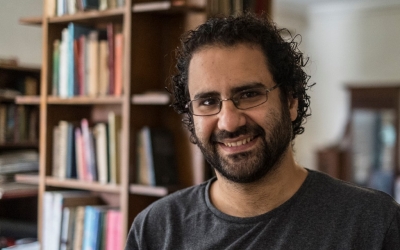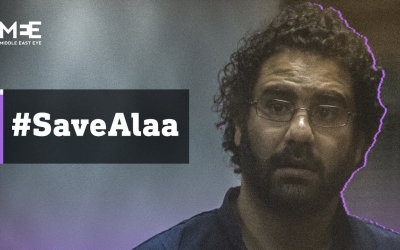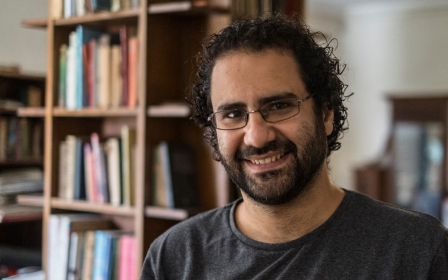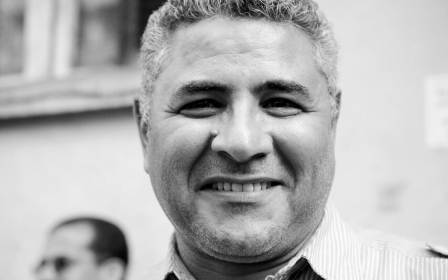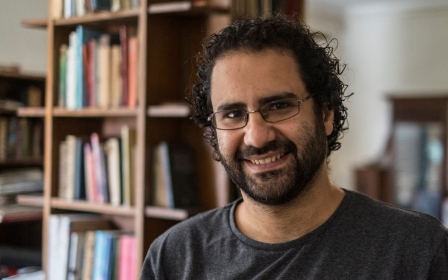Alaa Abd el-Fattah: Pressure piles on UK government to take action over imprisoned activist
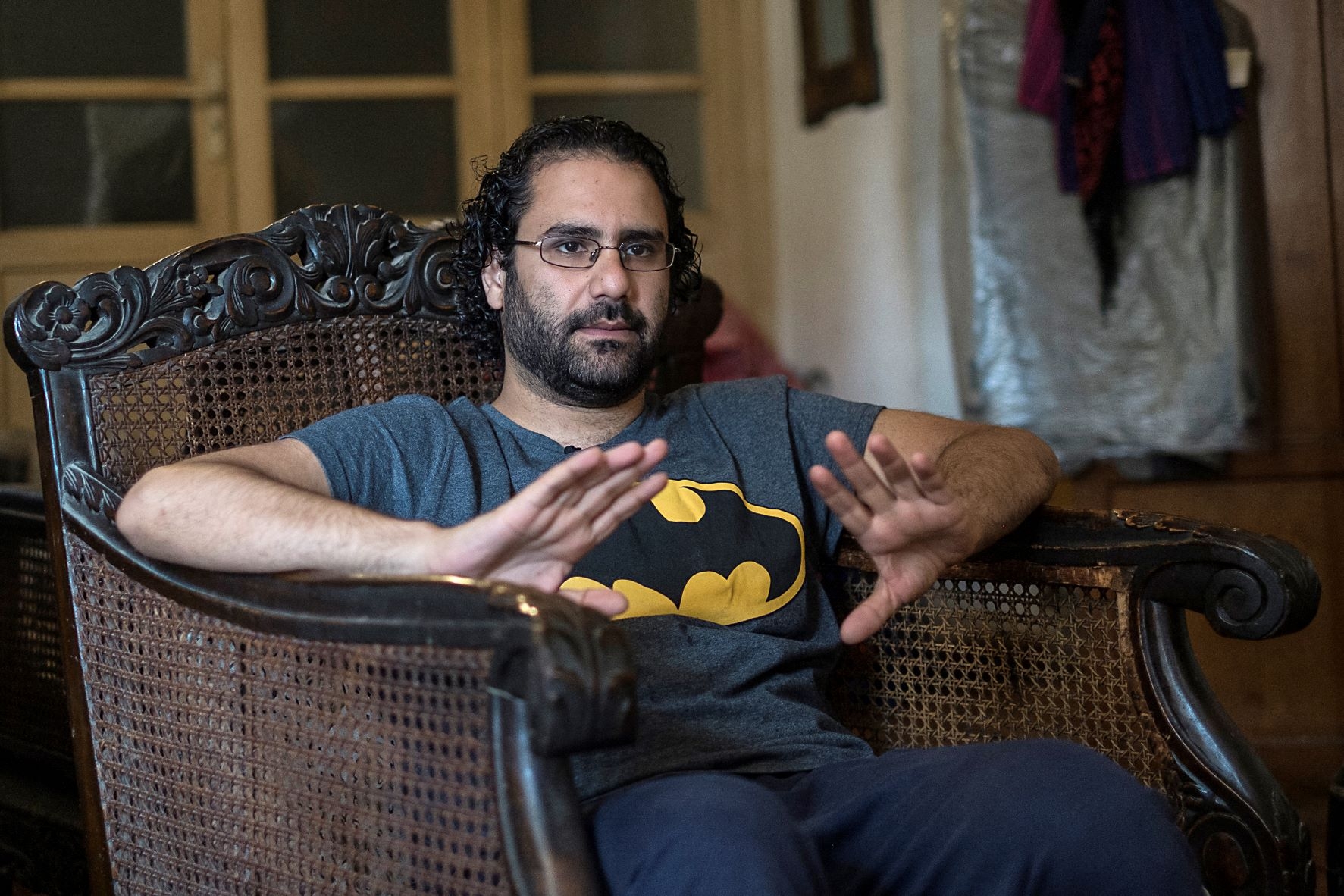
British parliamentarians have sent a letter calling on the UK government to pressure Egypt over consular access to imprisoned British-Egyptian activist Alaa Abd el-Fattah, as his family have become increasingly concerned about his health.
Abd el-Fattah, who became a British citizen last month, has been on hunger strike since 2 April in protest against the authorities refusal to allow British officials to meet with him.
'The UK should not accept that top level representations to a country that is an ally and a friend are not responded to with alacrity and good will'
- Ahdaf Soueif, novelist and Abd el-Fattah's aunt
On Thursday, his sister Mona Seif announced that he had been transferred from the maximum security Tora prison to the new Wadi El Natroun prison complex north of Cairo.
In a video on Facebook, she said that she could not be sure if it was "good or bad news", reiterating that they needed to have consular access to even confirm what has happened.
The pro-democracy activist, who was an icon of the 2011 Arab Spring demonstrations, has spent eight out of the last tens years in jail on a range of charges, including spreading false news and terrorism. His family have become deeply alarmed at his deteriorating situation.
New MEE newsletter: Jerusalem Dispatch
Sign up to get the latest insights and analysis on Israel-Palestine, alongside Turkey Unpacked and other MEE newsletters
Speaking to Middle East Eye, Abd el-Fattah's aunt Ahdaf Soueif - a novelist and British citizen herself - said they had hoped his new citizenship would have offered him protection.
"Alaa - and we - had been confident that when the UK embassy showed the authorities the certificate of naturalisation the consular visits would be allowed immediately," she said.
"Five years of the conditions he was in was not a life he could imagine enduring. Also, the ability of the authorities to stonewall the embassy of a powerful friend and ally speaking on his behalf actually made Alaa more vulnerable in prison. So he decided to take agency."
She said the British embassy in Cairo had been "extremely supportive" but that so far the family had only one meeting with government officials in London.
"We are seeking higher level meetings urgently," she added.
On Wednesday, a group of UK MPs sent a letter to British Foreign Secretary Liz Truss calling on her to do more to help the Egyptian activist.
The letter said he was being held in "inhuman" conditions and had for two and a half years been deprived of "reading materials, exercise, sunlight or bedding."
It called on the government to secure consular access for him, transfer him out of maximum security prison and press for his release.
"It will not be to anyone's advantage if the life of a prominent, secular, pro-democracy figure were to be lost," it added.
Damage to UK reputation
Abd el-Fattah was able to secure citizenship in April through his mother Laila Soueif, who is also a British citizen.
Since President Abdel Fattah el-Sisi overthrew the democratically elected government in 2013, he has embarked on a wide-ranging crackdown on democracy activists.
Rights groups estimate that Egypt currently has more than 65,000 political prisoners.
A number of prisoners who hold dual citizenship, however, have been able to secure early release in exchange for giving up their Egyptian citizenship.
Earlier this month, Palestian-Egyptian activist Ramy Shaath was forced to give up his citizenship in return for release from detention, before travelling to France to join his wife.
Asked about whether Abd el-Fattah would consider a similar agreement, Soueif said it was ultimately up to the government.
"Technically, the president could give an amnesty. But it is up to the authorities to release him in the way they choose," she said.
"The family understands that Alaa will not resist that."
MEE contacted the British foreign office to ask whether any action was being taken. The ministry said they were pushing for consular access and raising his case at the highest level.
The UK and Egypt enjoy trade ties worth billions of dollars. In a phone call between Prime Minister Boris Johnson and Sisi in March, Johnson welcomed "growing cooperation" between the two countries on trade, defence and security.
Soueif said that the UK risked "damage to its reputation" if it failed to pressure the Egyptian government to release Abd el-Fattah.
"The UK should not accept that top level representations to a country that is an ally and a friend are not responded to with alacrity and good will," she said.
"The UK should not accept that its own declared commitment to human rights and fair processes are brought into question by an ally and a friend."
Middle East Eye delivers independent and unrivalled coverage and analysis of the Middle East, North Africa and beyond. To learn more about republishing this content and the associated fees, please fill out this form. More about MEE can be found here.


